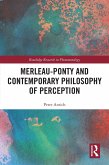Peter Hacker's Insight and Illusion is a thoroughly comprehensive examination of the evolution of Wittgenstein's thought from the Tractatus to his later 'mature' phase. This is a reprint of the revised and corrected 1989 edition, with a new foreword by Constantine Sandis. Hacker's book is now widely regarded as the best single volume study covering both the 'early' and the 'later' Wittgenstein. Until this third edition, the book had been out of print for 25 years.
The portable guide takes the reader through the major themes and concepts in Wittgenstein's works. In the name of exhaustiveness, these include: the so-called picture theory of meaning; the say/show distinction; the principle of verification; anti-metaphysics; anti-scientism; tautologies; the nature of mathematical propositions; ordinary language and nonsense; the law of the excluded middle; the Augustinian picture of language; knowledge and certainty; explanation and understanding; volition and the will; the relation of meaning to use; ostensive definition; ownership of experience; the first-person pronoun; the inner/outer; philosophical psychology; anti-solipsism; forms of life; the so-called private language argument; the autonomy of grammar; language games; and rule-following.
In so doing, Hacker gives us a picture of Wittgenstein's intellectual development: from his early conception of philosophy (influenced by thinkers as varied as the likes of Schopenhauer, Hertz, Boltzmann, Frege, and Russell), through the 'middle period', which began with his return to philosophy in 1929, to his later work-of which Hacker takes the Philosophical Investigations to be his masterpiece.
The portable guide takes the reader through the major themes and concepts in Wittgenstein's works. In the name of exhaustiveness, these include: the so-called picture theory of meaning; the say/show distinction; the principle of verification; anti-metaphysics; anti-scientism; tautologies; the nature of mathematical propositions; ordinary language and nonsense; the law of the excluded middle; the Augustinian picture of language; knowledge and certainty; explanation and understanding; volition and the will; the relation of meaning to use; ostensive definition; ownership of experience; the first-person pronoun; the inner/outer; philosophical psychology; anti-solipsism; forms of life; the so-called private language argument; the autonomy of grammar; language games; and rule-following.
In so doing, Hacker gives us a picture of Wittgenstein's intellectual development: from his early conception of philosophy (influenced by thinkers as varied as the likes of Schopenhauer, Hertz, Boltzmann, Frege, and Russell), through the 'middle period', which began with his return to philosophy in 1929, to his later work-of which Hacker takes the Philosophical Investigations to be his masterpiece.
Dieser Download kann aus rechtlichen Gründen nur mit Rechnungsadresse in A, D ausgeliefert werden.









